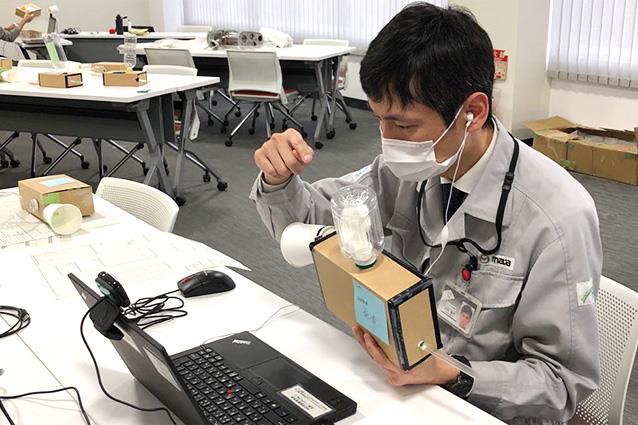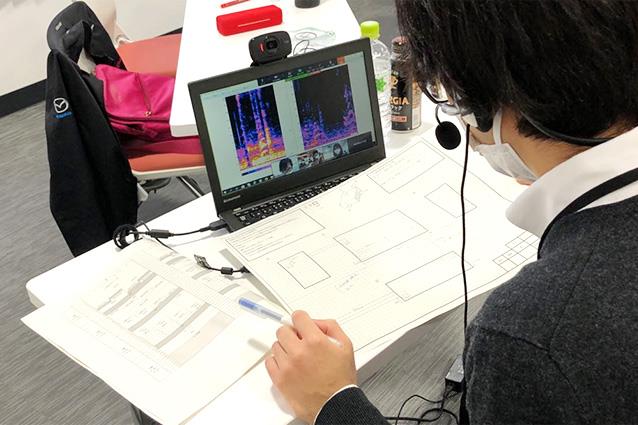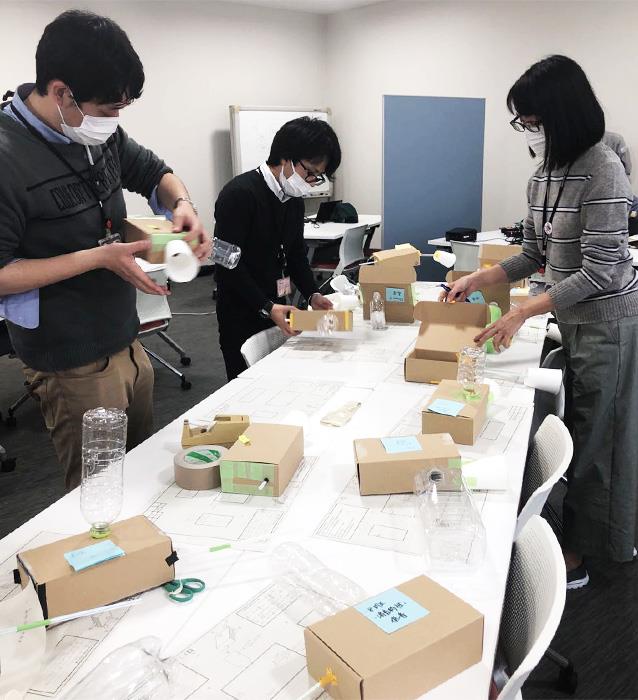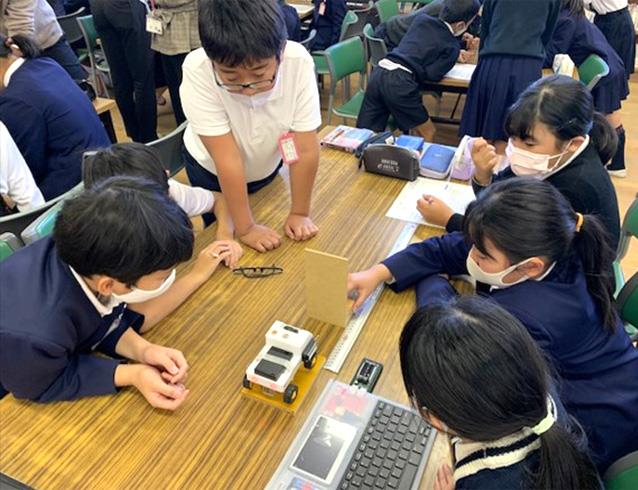SHARING THE JOY OF CHALLENGES TO SOLVE PROBLEMS
Supporting learning through manufacturing
[Japan] Mazda Motor Corporation


Students apply scientific principles and creativity to design mufflers
Mazda supports the purpose of STEAM classes*1 offered by the Future Creation Department*2 of the Hiroshima Global Academy, a prefectural comprehensive junior and senior high school in Hiroshima, and provided classes*3 for second-year junior high school students at the school. Reflecting on the history of industry and the present, students engaged in discussion with their instructors as they considered the kind of society they would like to create in the future in 2030, when they will be playing active roles as adults. The 17 instructors from Mazda included several staff from the R&D department as well as production engineering and plant planning staff and engineers. In the practical phase of the classes, the students took on the challenge of making a muffler and adopted as their theme, "Let's learn about mufflers through a simulated experience of designing sounds and manufacturing." The instructors began by explaining the role of the muffler and how Mazda uses the principles of sound to produce the ideal sound they are aiming for. In the same way, the students then applied the principles of sound to design and create the sounds they wanted to produce. To do this, they made models using a variety of materials available in their immediate surroundings such as cardboard boxes, straws, plastic bottles and tissue. After completing their models, they sent them to Mazda for testing. At Mazda, we used measuring equipment that is actually used in development to verify whether the anticipated results could be obtained. Only this phase of the classes had to be conducted online, due to COVID-19 restrictions, and although it was difficult for both sides, when the desired measurements were achieved, the students let out cheers of delight. Some students, who seemed to have learned a lot through these classes, expressed their desire to become engineers in the future. The classes were also a learning experience for the instructors, one of whom commented, "It made me reconsider my work and reaffirm my motivation for working at Mazda. It was a valuable experience that will be a starting point for human resource development." For both students and instructors alike, the classes were a memorable experience.

- *1. Interdisciplinary study of subjects that includes science, technology, engineering, art, and mathematics to achieve creative learning. This approach to learning is promoted in education policies in Europe and the United States as well as those of the Ministry of Education, Culture, Sports, Science and Technology.
- *2. A program where children, who will be leaders in a world where predicting the future will be difficult, learn through comprehensive learning to develop their own abilities by creatively predicting the future and taking on the challenge of solving social issues.
- *3. A total of 35 classes are held in four phases (Phase 1. Thinking by engaging in dialogue with employees: Reflecting on industrial history and the present, imagining the future society. Phase 2. Coming into contact with "the real thing:" Go to the site, touch the object, feel it through your five senses. Phase 3. Practice: Get your hands moving and give it shape. Phase 4. Demonstration of total output of learning up to this phase: Raise issues of future society and propose solutions by teams).
By the numbers
Duration of program: 1 year
What can we program?

Prior to the introduction of programming education in elementary schools in 2020, Mazda has been providing support for programming lessons in elementary schools nearby Mazda's head office in Hiroshima since 2019 in cooperation with the Hiroshima Council of Automotive Industry-Academia-Government Collaboration, an organization that has been focusing on the development of people capable of innovation.
In FY2020, for the curriculum on the theme "Let's think about everyday life and the future of automobiles," Mazda produced an educational video that introduces challenges and initiatives of an automotive society and provided the video for 980 children at 16 schools.
Utilizing "non-collision car robots," Mazda also provided support for programming classes and practical training sessions for teachers at schools where the classes were held.
By the numbers
Duration of program: 2 years
